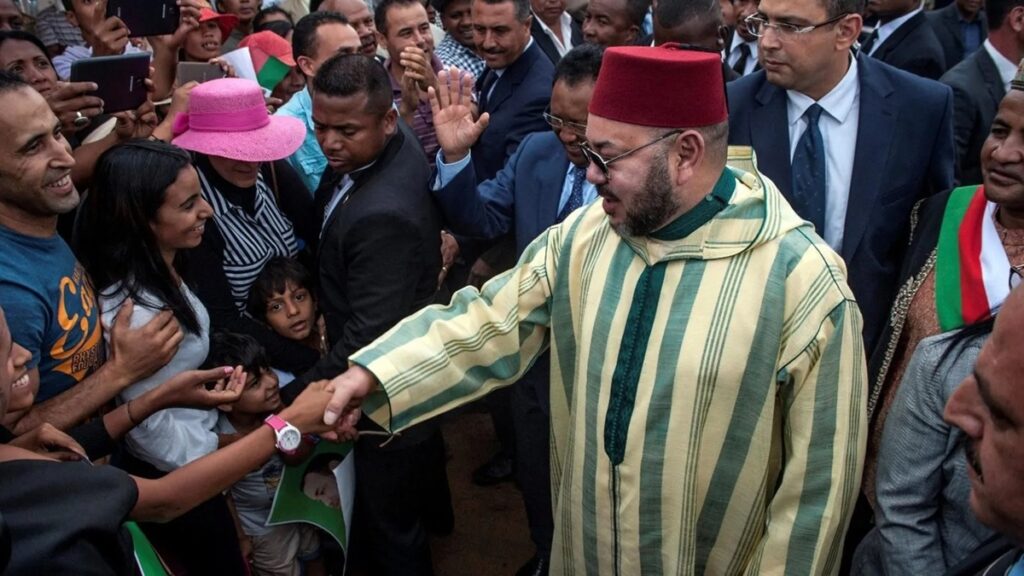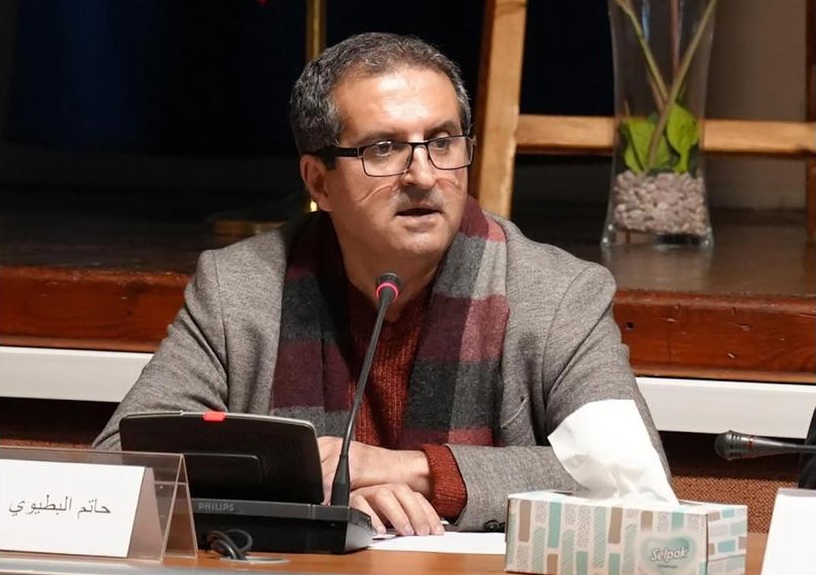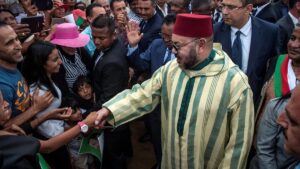Mohammed VI and listening to the pulse of his people... the "password" of his system of government

Written by: Hatem Al-Batawi (Moroccan writer and journalist)
In 2000, a year after assuming power in the Kingdom of Morocco, King Mohammed VI was asked by the American newspaper "Time", which was the first international outlet to conduct an interview with him, about his aspirations for his country. He replied: "I might sound a little modest if I say that I want the best for Morocco."
In that interview, he spoke about his childhood, which received special care, and his upbringing within the royal palace. However, he also emphasized that he felt as if he lived among other Moroccans.
At the time, King Mohammed VI did not hesitate to express his gratitude to his father, the late King Hassan II, who had ensured that he receive his education in Morocco rather than abroad, thus gaining a deeper understanding of his country's realities.
Today, twenty-six years after his accession to the throne, King Mohammed VI continues to demonstrate his keen interest in listening to the pulse of his people, a commitment that has become the "key word" of the ruling system during his reign.
In the same interview, the King revealed that among the most important pieces of advice his late father gave him was that “leading the government does not mean pleasing everyone.” He noted that some of the decisions he would have to make might not please him personally, and might be difficult or unpopular, but they would be in the best interests of the nation.
From the beginning, King Mohammed VI was aware of the major challenges facing his country, most notably unemployment, agriculture, and drought. He said in this regard, "I could talk to you for hours about the priority battle we must wage relentlessly against poverty, misery, and illiteracy."
Over the past quarter century, Mohammed VI has fought with great skill in the battles of development and the fight against poverty and fragility. What has been achieved and changed in Morocco under his rule?
Although the Moroccan monarch has emphasized that his affiliation with the new generation of Arab leaders does not necessarily entail a complete reconsideration or change of everything, he has succeeded in transforming Morocco's image internally and externally, economically, socially, developmentally, and diplomatically, particularly with regard to the issue of the Western Sahara.
On the economic level, major infrastructure projects have been completed, such as the Tangier Med Port, the largest in Africa and the Mediterranean, and the Dakhla Atlantic Port. The high-speed train connecting Tangier to Casablanca was also launched, with plans to extend it to Marrakesh.
The railway network has also been modernized, and the highway network has been expanded to more than 1,800 kilometers. The number of airports has reached 27, 21 of which operate scheduled passenger flights.
The productive sectors, in turn, have received a clear strategic vision. The Green Morocco Plan was launched to develop agriculture, and the Halieutis Plan to modernize the fisheries sector. Phosphate exports and manufacturing industries were also strengthened.
In 2005, the King of Morocco launched the National Initiative for Human Development, a massive social project aimed at achieving social justice, combating poverty and vulnerability, supporting income-generating projects, and developing infrastructure in rural areas.
The royal reform also included the education and vocational training sector, by updating curricula, encouraging vocational training as a lever for employment, and expanding school enrollment in villages.
The health and social protection sector has received extensive attention from the Moroccan monarch, manifested in the extension of the RAMED system to the poor, the comprehensive social protection project by 2025, the construction of new university hospitals, and the improvement of the quality of health services.
Moroccan women, in turn, received special royal attention, which was translated into the reform of the Family Code (2004), which granted women broader rights, in addition to strengthening their political and administrative representation.
On the international front, Morocco has achieved major diplomatic breakthroughs, particularly in Africa and the Sahara issue. Rabat rejoined the African Union in 2017, 34 years after withdrawing following the Organization of African Unity's 1984 recognition of the so-called "Sahrawi Republic."
Morocco's efforts culminated in its obtaining US recognition of its sovereignty over the Sahara in 2020. This was an unprecedented diplomatic event, leading to an increase in the number of countries supporting the Moroccan autonomy initiative, while support for the separatist Polisario Front declined. More than 30 countries withdrew their recognition of the so-called "Sahrawi Republic" established by Algeria on its territory, not to mention the opening of African and Arab consulates in the cities of Laayoune and Dakhla.
Thus, Morocco succeeded in turning the tide and scoring strong points in the Western Sahara issue, shifting from a defensive to an offensive position on the international stage.
At the beginning of his reign, Mohammed VI received Louis Michel, the Belgian Foreign Minister, who praised the late King Hassan II and how he placed Morocco at the heart of global diplomacy. The young monarch responded: "My father put Morocco on the world's maps, and I want to put Morocco in the heart of every Moroccan."
Mohammed VI has bet that the fruits of progress and development will extend to all citizens, in all regions and areas, without discrimination or exclusion. In his 26th Throne Day speech, he said, "I will not be satisfied, no matter the level of economic development and infrastructure, if they do not contribute, in a tangible way, to improving the living conditions of citizens, from all social classes, in all regions and areas." He emphasized that "there is no room, today or tomorrow, for a Morocco that moves at two speeds."
Quoted from: Lebanese newspaper "An-Nahar"






